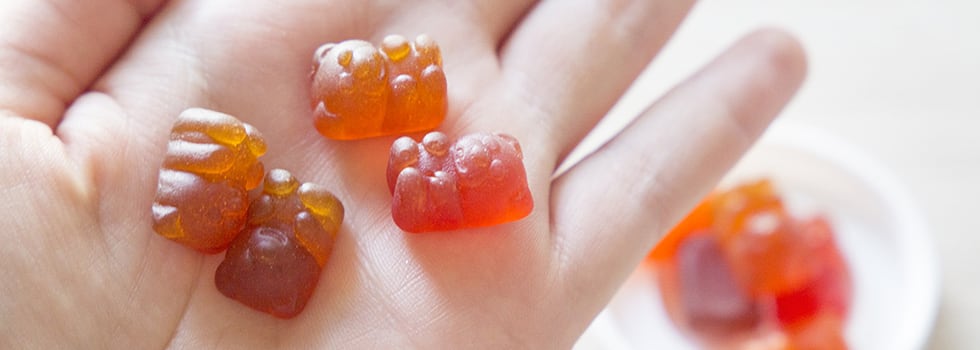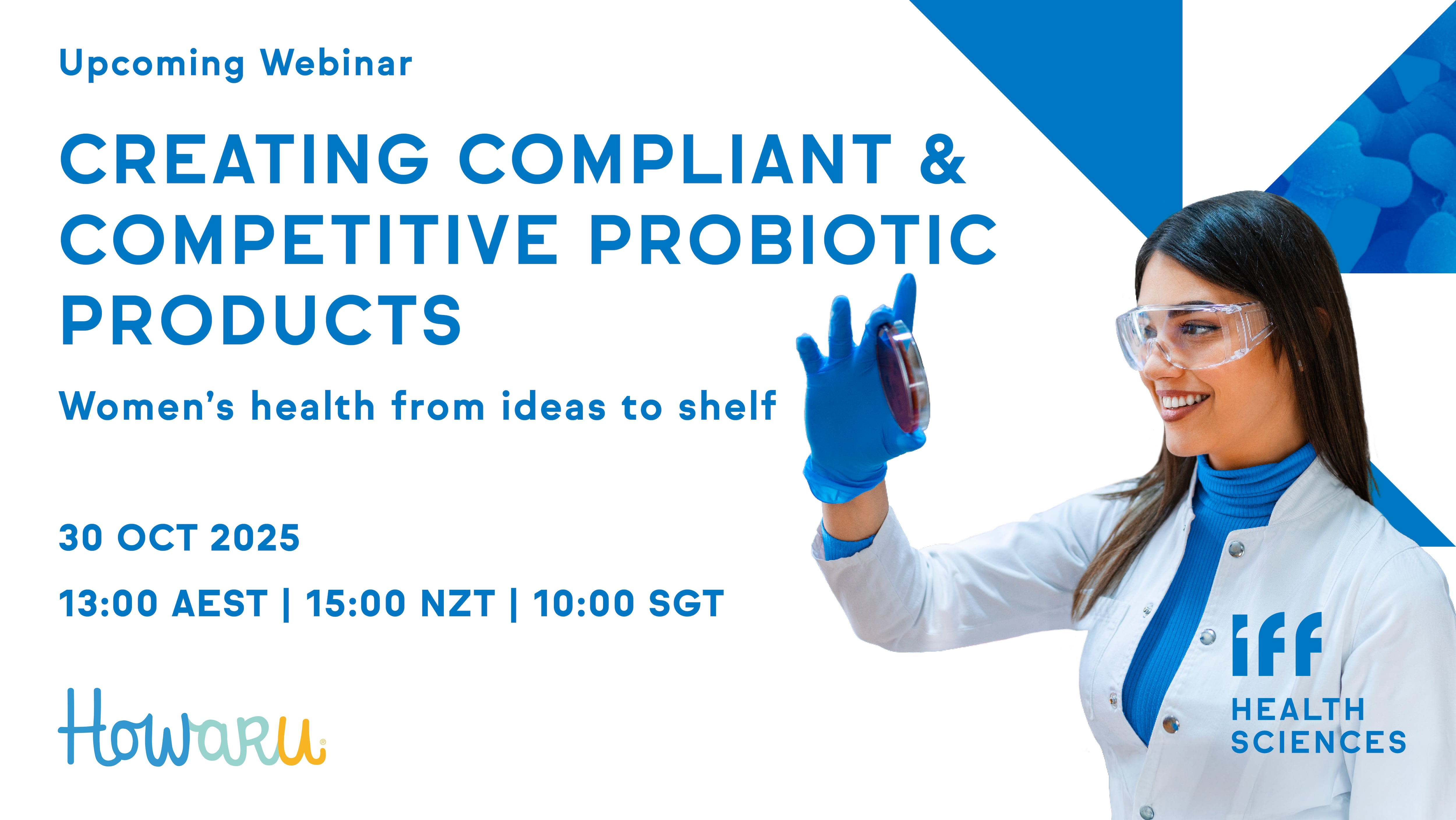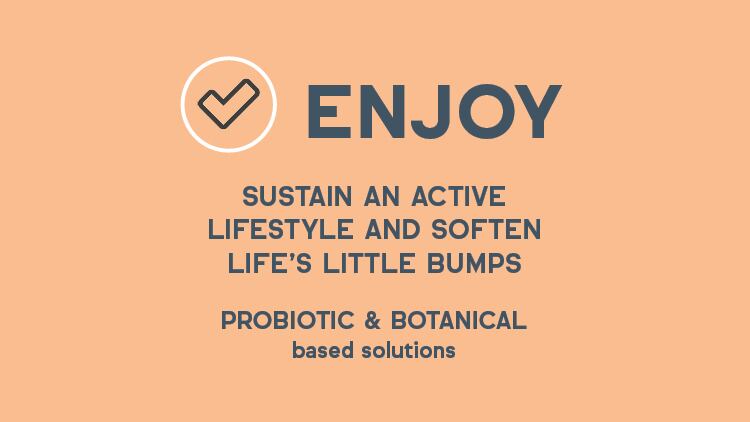As the dietary supplement market has continued to grow, consumers have become more and more demanding of the products they take. Gummies have emerged as an alternative dosage form that provides adults, who make up more than 80% of the market [1], a needed change from taking another tablet or capsule. The phenomenon known as “pill fatigue”, whereby consumers attempt to reduce the number and size of capsules and tablets they consume, has created a gap in the market, that gummies can uniquely fill.
Fifty-seven percent of supplement industry professionals surveyed in 2020 said pill fatigue is real and is driving them to focus on novel delivery formats and dosage forms to make compliance easier and more enjoyable for the consumer [2].
As a result, gummy sales have doubled over the period 2014-2018 [3], as they meet the consumer’s desire for a more enjoyable way to consume their supplements. With a compound annual growth rate of 16%, the gummy sector is expanding far faster than the wider dietary supplement market [4].
According to Mintel, in 2020 more than 500 new DS gummy products came to the market. This compares to about 330 new DS gummy products in 2019. In 2019, about 1 in 2 gummies contained gelatin. This number declined to a little less than 40% in 2020, which is linked to consumers’ growing preferences for plant-based products. For instance, in 2020 one-third of Europeans now identify as flexitarian, pescatarian, vegetarian, or vegan; meaning they have limited or eliminated animal products from their diets [5]. As such, a large, growing proportion of consumers are seeking out alternatives to traditional gelatin gummies.
Making changes to production processes is never an easy task; and the change from animal to plant-based gummies is no different. Formulators and manufacturers must balance the demands of consumer’s desire for specific label claims and sensory experience with their current manufacturing operation.
The challenge is that many consumers of supplement gummies may be unwilling to compromise on the sensory properties when opting for plant-based gummies. They want gummies that replicate the mouthfeel and taste of gelatin-based products but without the use of animal products. However, the sensory properties of vegan gummies can be different.
Why pectin is an ideal alternative
The search for a plant-based ingredient that creates gummies with excellent sensory properties has led manufacturers to pectin, such as the citrus peel sourced GRINDSTED Pectin PRM from IFF. Pectin is a familiar ingredient to both consumers and formulators that enables production of plant-based, clean-label gummies with a clean flavor release and short bite. GRINDSTED Pectin PPRM can also support organic label claim options.
Switching to pectin can enable gummy manufacturers to address many of the most pressing issues they face. The 2020 survey found the main problems facing dietary supplement developers are: ensuring ingredients can enable desired nutritional claims, such as low or no sugar, and delivering on consumer aesthetic, taste, and texture preferences.
Selecting the right pectin is vital to address those problems. Pectin creates gummies with a soft viscous body that has an excellent mouthfeel, taste, very rapid flavor release, a clean cut texture and shiny appearance. As such, pectin is a plant-based ingredient that performs and delivers on the aesthetic, taste and texture preferences of consumers. Equally, experts in pectin-based gummies can develop products that have reduced levels of sugar but still have the desired sensory properties.
Respondents to the 2020 survey listed the following label claims as the most important: non-GMO, plant-based, organic and sugar-free. With the right formulation and manufacturing knowhow, pectin is uniquely positioned to create gummy products that support all of these claims, with one ingredient.
Pectin has some additional benefits over gelatin. Notably, gelatin melts at around 35℃ [6]. The melting point is low enough that gelatin-based gummies lose their structural integrity on hot summer days and stick together. To stop their products from melting, manufacturers may ship gelatin-based gummies in temperature-controlled trucks, adding unnecessary costs to distribution. Producing gummies using pectin eliminates these melting problems as pectin melts around 143℃ [7].
Managing the move to pectin
The properties of pectin make it the ideal alternative for gummy manufacturers that want to adapt their products to the plant-based market. However, differences between the properties of gelatin and pectin mean supplement manufacturers need to evaluate and manage the impact of the switch on their operations and gummies. All of the differences can be accommodated through changes to existing facilities that make gelatin-based gummies.
Pectin’s excellent thermostability, while an advantage for the finished product, forces manufacturers to adapt their processes. Similarly, supplement manufacturers must assess how differences between the viscosity of pectin and gelatin will affect their ability to move material through their process.
Manufacturers can manage the transition by working with a pectin provider that understands how to make gummies using the ingredient. IFF is such a pectin provider. As well as offering a range of pectin grades, IFF knows how to develop a consistent, reproducible manufacturing process and adapt the recipe to fine tune the sensory properties of the gummies.
IFF, an industry leader in food, beverage, scent, health and biosciences, supports supplement gummy makers with a range of plant-based solutions like GRINDSTED Pectin PRM, seaweed extracts like Gelcarin as well as with products and expertise that help enhance the taste of gummies to improve consumer experience and compliance.
Gummy manufacturers that work with IFF to switch from gelatin to a plant-based alternative stand to meet demand for alternative dosage forms made from non-animal ingredients and, in doing so, help more people to get the nutrients they need.
[1] Krawiec, S. Who’s driving the gummy supplement market? Hint: It’s not kids. Nutritional Outlook https://www.nutritionaloutlook.com/view/whos-driving-gummy-supplement-market-hint-its-not-kids (2018).
[2] Survey Report: State of the North America Supplements, Health & Nutrition sector 2020. https://www.nutraingredients-usa.com/Product-innovations/Survey-Report-State-of-the-North-America-Supplements-Health-Nutrition-sector-2020.
[3] Reynolds, C. M. The Analyst’s Take: Gummy supplement sales double from 2014 to 2018. https://www.newhope.com/market-data-and-analysis/analysts-take-gummy-supplement-sales-double-2014-2018 (2019).
[4] Mound, D. Gummy supplements: Benefits and challenges. Nutritional Outlook https://www.nutritionaloutlook.com/view/gummy-supplements-benefits-challenges (2020).
[5] Veganz nutrition study 2020. https://veganz.com/blog/veganz-nutrition-study-2020/ (2020).
[6] The science of gelatin - article - FineCooking. https://www.finecooking.com/article/the-science-of-gelatin (2014).
[7] PubChem. Pectin. https://pubchem.ncbi.nlm.nih.gov/compound/Pectin








